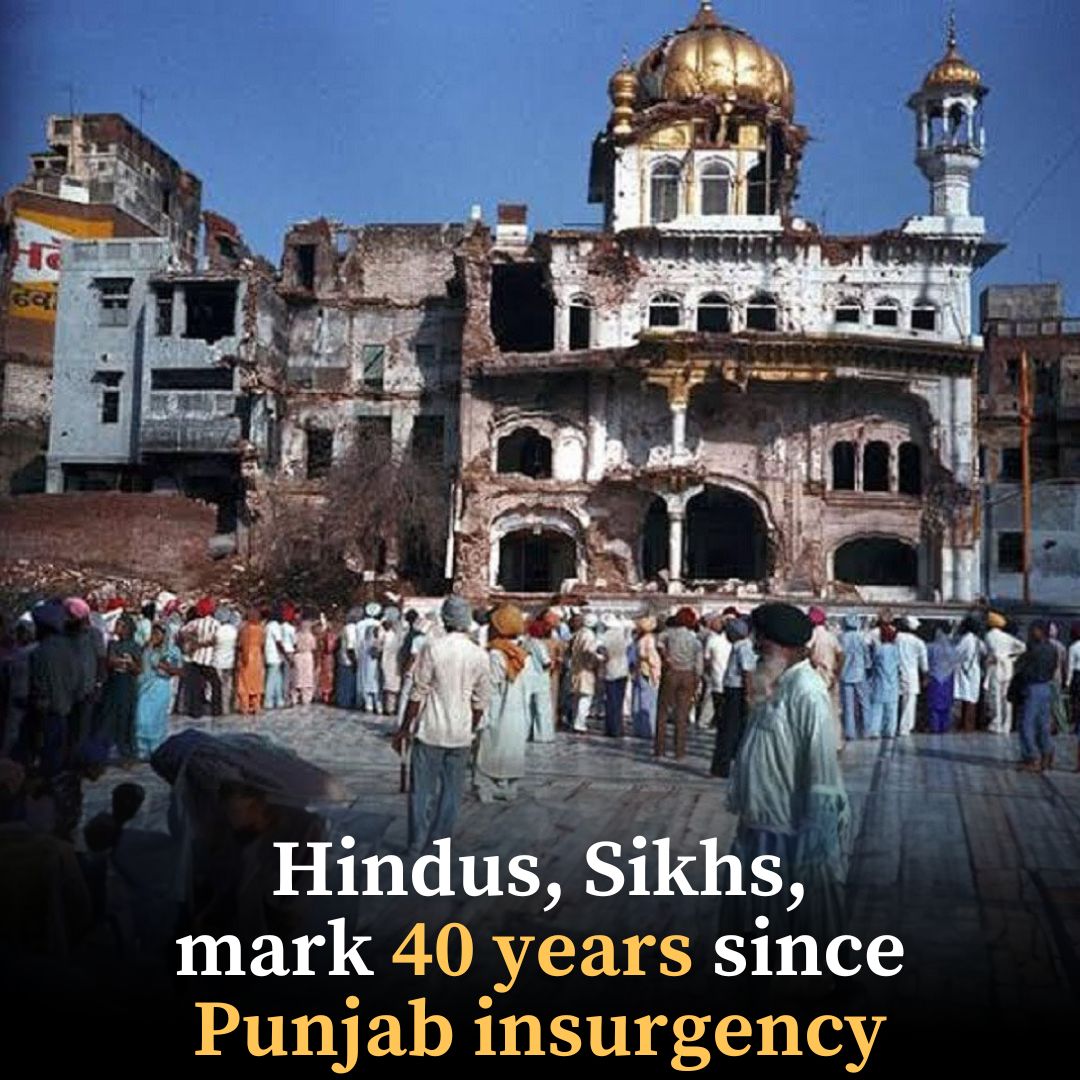In the 1980s, the Indian state of Punjab experienced political turmoil, caused by a political conflict between Sikh separatists and the Congress Party running India’s Central Government. The conflict culminated in an attack on the Harmandir Sahib (Golden Temple) by the Indian Army on 6th June 1984, which the Indian Government claimed was provoked by armed Sikh separatists who were living in the Temple complex. Many innocent civilians, mainly Sikhs, lost their lives in the violence that followed.
Despite the insurgency of the 1980s, Pew Research Survey in 2021 showed that a near-universal share of Sikhs say they are very proud to be Indian (95%), and the vast majority (70%) say a person who disrespects India cannot be a Sikh. Like India’s other religious groups, most Sikhs (14%) do not see evidence of widespread discrimination against their community in Hindu-majority India.
Hindus were also hugely affected by this conflict, as some Sikh separatist groups proposed that Punjab should become a Sikh theocracy called Khalistan. In 1981 Lala Jagat Narain, an 82-year-old Hindu newspaper editor was murdered after publicly standing up to anti-Hindu rhetoric by Sikh separatist groups. This was followed by a series of coordinated attacks against Hindus in Punjab, which continued into the early 1990s. Hindus were pulled out of trains and buses and shot dead. Wedding processions, religious events and Hindu-dominated neighbourhoods were targeted. Hostilities led to thousands of Hindu and Sikh families fleeing Punjab as the state became more and more dangerous to live in. Hindus were pulled out of trains and buses to be shot dead, with numerous wedding processions, religious events and Hindu-dominated neighbourhoods being targeted. Many Sikhs who opposed Sikh Separatists were also murdered, such as Giani Partap Singh, an 80-year-old Sikh religious leader who was murdered in the Harmandir Sahib complex itself. Police crackdowns on insurgents in Punjab often resulted in casualties, with many Sikh families reporting that their relatives were picked up by the police never to return.
The Indian Armed invasion of the Harmandir Sahib, known as Operation Bluestar, resulted in turmoil in the region, culminating in the assassination of Indira Gandhi by her Sikh bodyguards. This was followed by a brutal retaliatory anti-Sikh pogrom in New Delhi in October 1984, which took the lives of over 3,000 innocent Sikhs.

